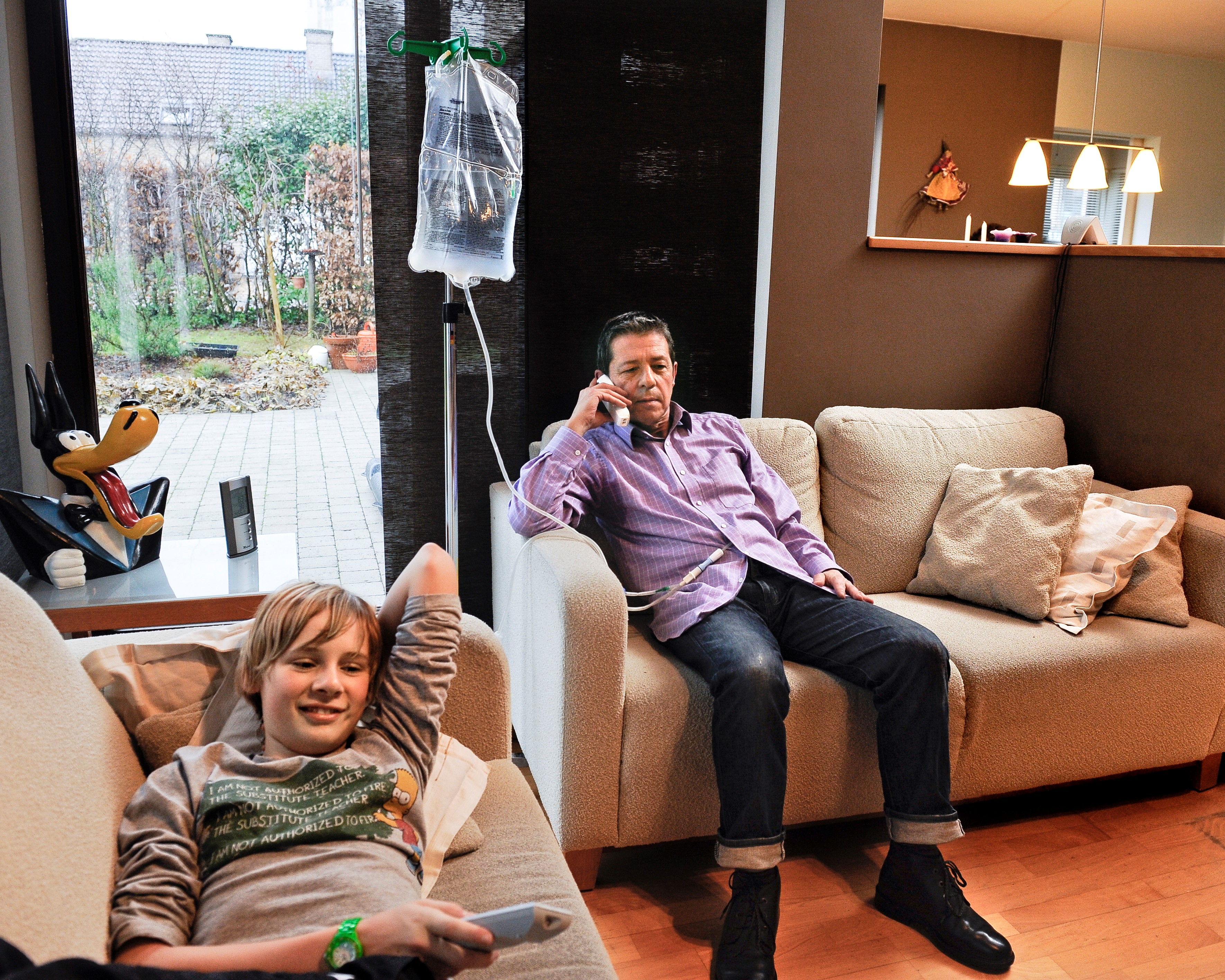Is peritoneal dialysis (PD) right for me?
What is Peritoneal Dialysis (PD)?

Peritoneal dialysis uses the lining of your own abdomen, called the peritoneal membrane, to filter and clean your blood. During PD, a fluid called dialysis solution passes into your abdomen through a catheter. The solution absorbs any waste and excess fluid and is then drained out of your abdomen again.
PD can be done almost everywhere, at home, at work or while travelling, and at any time, during the day or while sleeping. You can tailor your treatments to your lifestyle, rather than the other way around.
Your decision matters!

As your kidney function slows down and stops working normally, you will need to make a decision about your treatment
Your choice of treatment affects every aspect of your life, including your schedule, diet, activities, energy level, and more. A diagnosis of kidney disease can feel overwhelming and you may be anxious about the lifestyle changes it involves. However, you do have a choice of treatment, and your healthcare team is there to educate you on all the types of options available to you.
Start the discussion about the different treatment options early with your healthcare team and your family. This will help prevent the need for a hurried and uninformed decision if your kidney function drops faster than you anticipated. If this happens you may have to start dialysis urgently, and may not have time to choose the type of treatment that suits your lifestyle. In this case, you will likely be put on the default dialysis, which is in-center hemodialysis. There are medical considerations as well as lifestyle considerations for why one type of treatment may be more suitable for you than another. Therefore, it is important to start your discussion with your healthcare team early, so you understand the different types of treatments in order to choose the right dialysis modality, and start planning to begin your treatment.
If you are already on a dialysis treatment and think it is not the right fit for you, you can always discuss with your healthcare team and reconsider your options.
The Importance of Shared Decision Making
Good decisions need active patients. Make it a priority to make decisions together with your doctor right from the start. Be open about what is important to you. This can increase the chances of successful treatment and thus improved satisfaction.

Thomas Seibert prevails
"No doctor told me anything about the PD, and that even though I really didn't get on well with the HD." Kidney patient Thomas Seibert from Munich didn't let that go.
Andreas Choice
When Andreas and his wife found out about PD from his doctor, they both agreed immediately: they would try PD straight away, because "you can always change".
Survey of German nephrologists
In a recent survey among German nephrologists 91% of the respondants would choose a home dialysis for themselves.

Besides PD which other treatment options could suit me?
Chronic kidney disease (CKD) can be treated in different ways. The website "My Kidney Journey" is developed to provide you with the knowledge and resources you need to plan for a healthy and full life while on dialysis or other chronic kidney disease (CKD) treatments.